detail profile ji c5 99 c3 ad kodet

Jiří Kodet
Jirí Kodet
atau dikenal sebagai
Riwayat Hidup
He came from a very old Czech theatrical family of Steimar and artistic family of Kodet, he was the son of Czech actress Jiřina Steimar and sculptor Jan Kodet.
After her parents divorced, her mother married Jaroslav Juhan, a car racer, but he emigrated.
This had an impact on the further studies of Jiří Kodet, who was expelled from the grammar school and was not admitted to the DAMU until the second time.
He left the DAMU before graduating and began his theatre career at the East Bohemian Theatre in Pardubice (1961-1962).
In 1962-64 he was in the Artistic Military Ensemble, based in Pohořelec, Prague.
With this ensemble he toured a large part of the former Czechoslovakia.
His future colleagues from the Drama Club, Jiří Hrzán, Jiří Zahajský and Petr Skoumal, were in the ensemble with him.
In Pardubice, he was sought out by Jan Kačer, who was assembling a troupe for the Petr Bezruč Theatre in Ostrava.
Kodet worked in Ostrava from 1963-1965, and from 1966 he played at the Prague Drama Club, where some of the members of the Ostrava ensemble moved.
In 1991 he became a member of the drama company of the National Theatre in Prague.
During his lifetime he played a number of small and episodic roles in film and television, but it was not until the end of his life that he was able to play major roles, mainly thanks to director Jan Hřebejk, who cast him in his film Divided We Fall, and earlier also in Cosy Dens, which was his most successful film ever.
Description above from the Wikipedia article Jiří Kodet, licensed under CC-BY-SA, full list of contributors on Wikipedia.
Info Pribadi
Peran Yang Di Mainkan Jiří Kodet
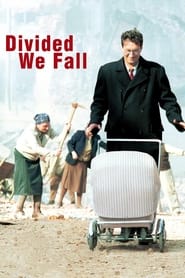 In 1943 a childless couple the eks...
In 1943 a childless couple the eks...Divided We Fall 2000
In 1943, a childless couple, the Čížeks, decide to hide a Jewish refugee, David Wiener, the son of Čížek's former employer, in the secret pantry of their apartment. Čížek is aware of the danger into which he has brought his household and his neighbours, but he takes helping his fellow man in need for granted. But at the same time, as a largely unheroic hero, he is dying of fear. His personal situation is greatly complicated by the approaching end of the war, when he faces danger from both the Germans and his "honest" fellow Czechs...
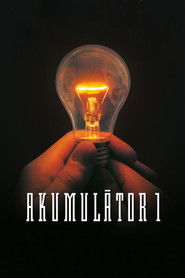 In this movie TV sets are...
In this movie TV sets are...Accumulator 1 1994
In this movie, TV sets are full of life. If a person is in TV (e.g. because it was filmed on the street) it has a double that's right in the TV set. This double needs energy from the true character to survive. Each time, the real human watches TV, his Double will pull life energy from him. So there's a mysterious Death-serial. Many persons die in front of their TV set and nobody knows why. Olda, the main character, is one of the persons, that get more and more weak. He is near death, till Fisarek, the natural healer appears. He teaches Olda how he can resist this magic force and how he can fight it.
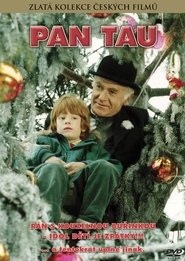 Pan Tau the friend of all...
Pan Tau the friend of all...Pan Tau – der Film 1988
Pan Tau, the friend of all children, now also helps the adults. A movie producer is in trouble and decides to shoot another Pan-Tau movie. But the old Pan-Tau actor Karasek is no longer young enough to walk the almost weightless walk of Pan Tau. Mr. Novak turns up - he resembles Pan Tau like a twin brother. He succeeds every pirouette. And as if by magic, he solves all the problems between people! Who is Mr. Novak? Is he really ...?
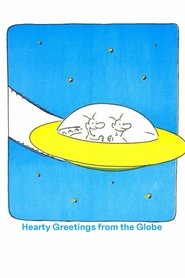 Two aliens stir up trouble on...
Two aliens stir up trouble on...Hearty Greetings from the Globe 1983
Two aliens stir up trouble on Earth in order to study humans. Misunderstandings ensue.
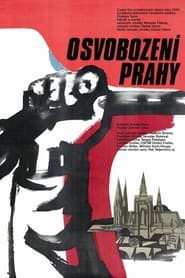 On 20th of April 1945 the Soviet...
On 20th of April 1945 the Soviet...The Liberation of Prague 1977
On 20th of April 1945 the Soviet army launches its attack on Berlin. The end has come for Nazi Germany and Hitler decides to commit suicide. In Prague K.H. Frank (Nazi Secretary of State and Chief of police in the Protectorate of Bohemia a Moravia) discusses with his commanders how to transform the city into an impregnable fortress, but the Praguers do not intend to wait any longer. From the early hours of 4th of May people start assembling in the streets and tearing down German signs. On the next day, the 5th of May, the uprising begins.
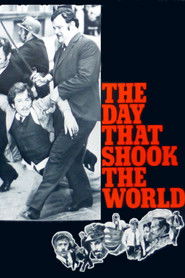 An historical depiction of the events...
An historical depiction of the events...The Day That Shook the World 1975
An historical depiction of the events preceding the political murder of Archduke Franz Ferdinand, would-be emperor of the Austro-Hungarian throne, in Sarajevo on June 28th, 1914.
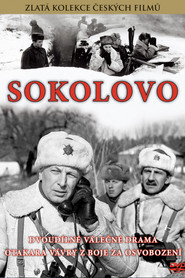 The plot begins in the Soviet...
The plot begins in the Soviet...Sokolovo 1975
The plot begins in the Soviet Union showing first efforts to establish the Czechoslovak legion in 1942. The film also shows the assassination of Heydrich and the subsequent annihilation of Lidice. The main topis of the film is battles with German troops for Sokolovo.
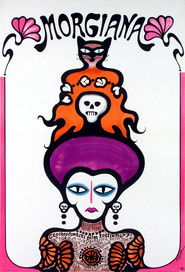 Jealous of her vapidly good sisters...
Jealous of her vapidly good sisters...Morgiana 1972
Jealous of her vapidly "good" sister's popularity, poisonous Viktoria doses pretty Klara's tea with a slow-acting fatal substance. As the latter grows hysterically weak, the former finds success increasingly compromised by guilt, blackmail, and the pesky need to kill others lest she be exposed.
 A gifted poet checks into a...
A gifted poet checks into a...Hotel for Strangers 1967
A gifted poet checks into a Gothic hotel in hopes of meeting the woman with whom he has long been enamored. He is surrounded by a variety of offbeat characters like the hefty homosexual cook, shadowy clerks, snooty waiters, and valets prone to violence. He finally meets the woman of his dreams only to lose her and ultimately meet with tragedy.
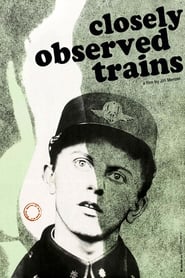 At a village railway station in...
At a village railway station in...Closely Watched Trains 1966
At a village railway station in occupied Czechoslovakia, a bumbling dispatcher’s apprentice longs to liberate himself from his virginity. Oblivious to the war and the resistance that surrounds him, this young man embarks on a journey of sexual awakening and self-discovery, encountering a universe of frustration, eroticism, and adventure within his sleepy backwater depot.
 In her first feature Vra Chytilov...
In her first feature Vra Chytilov...Something Different 1963
In her first feature, Věra Chytilová uses a combination of documentary and fiction film techniques to tell two stories in counterpoint. The first follows Olympic champion gymnast Eva Bosáková, who contemplates retirement as she undergoes a gruelling training schedule; the second, a housewife who is unappreciated and ignored by her husband.
 Two families Sebkovi and Krausovi are...
Two families Sebkovi and Krausovi are...
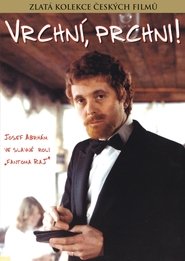 A comedy concerning a down on...
A comedy concerning a down on...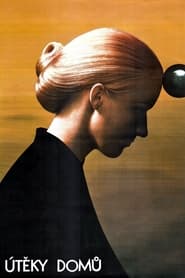 A twelveyearold is looking for his...
A twelveyearold is looking for his...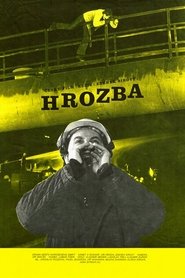
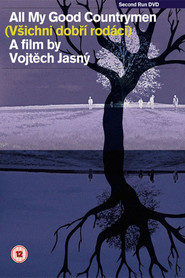 The lives of 7 friends in a...
The lives of 7 friends in a...